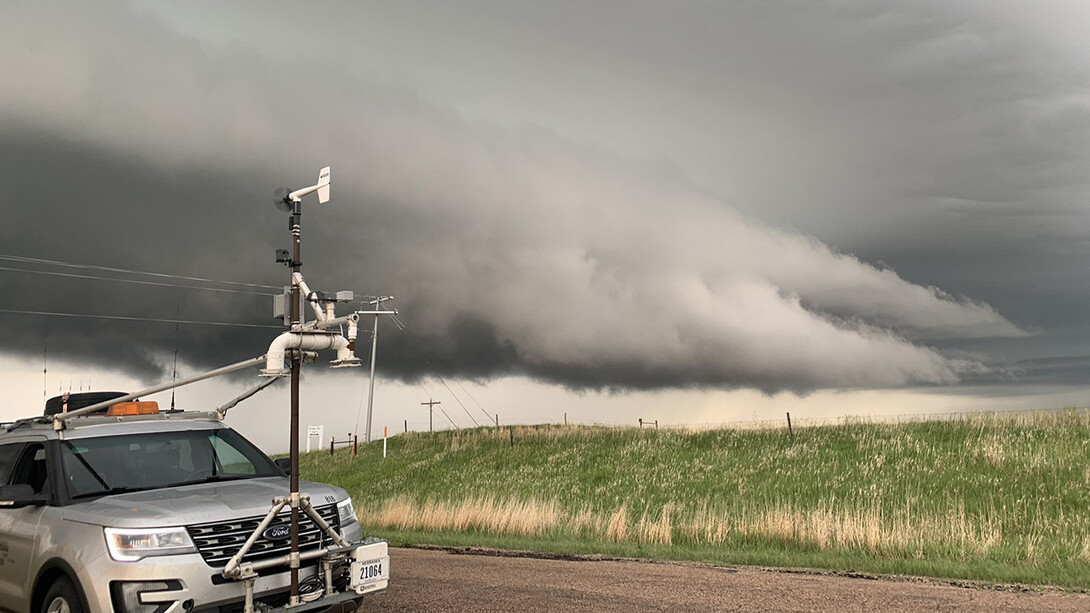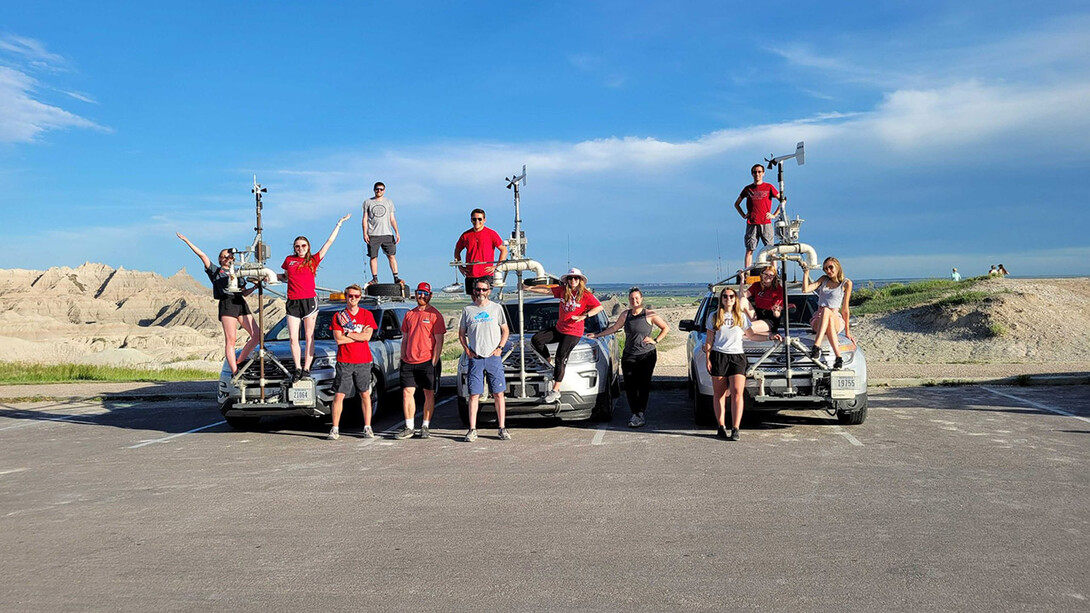
The Targeted Observation by Radars and UAS of Supercells (TORUS) project, led by the University of Nebraska–Lincoln’s Adam Houston, was featured in a Sept. 8 New York Times article.
From mid-May to mid-June, the 17-member, multi-institutional TORUS team covered more than 9,000 miles of the Great Plains, from Texas to the Canadian border, using high-tech instruments to gather data on supercell thunderstorms. The goal of the $4 million project is to better understand how tornadoes form to improve the country’s warning system, which dates back to the 1940s, the Times reported.
“There have been environments where everything seems to be in place, and yet a tornado doesn’t form,” said Houston, professor of Earth and atmospheric sciences. “So what is that piece that we’re missing? What is that thing that short-circuits the process?”

The team — which includes researchers from Nebraska U, the University of Colorado, Texas Tech University and the National Severe Storms Laboratory at the University of Oklahoma — collected data from 16 supercells this summer, the Times reported. Analyzing that data — which will be combined with data collected during a 2019 trip and other past research efforts — will likely take years.
For more information on the TORUS project, click here.
Nebraska Headliners highlights Husker faculty and staff featured in major national news outlets. If you see a possible Nebraska Headliner, submit the story or URL via email to nebraskatoday@unl.edu.







